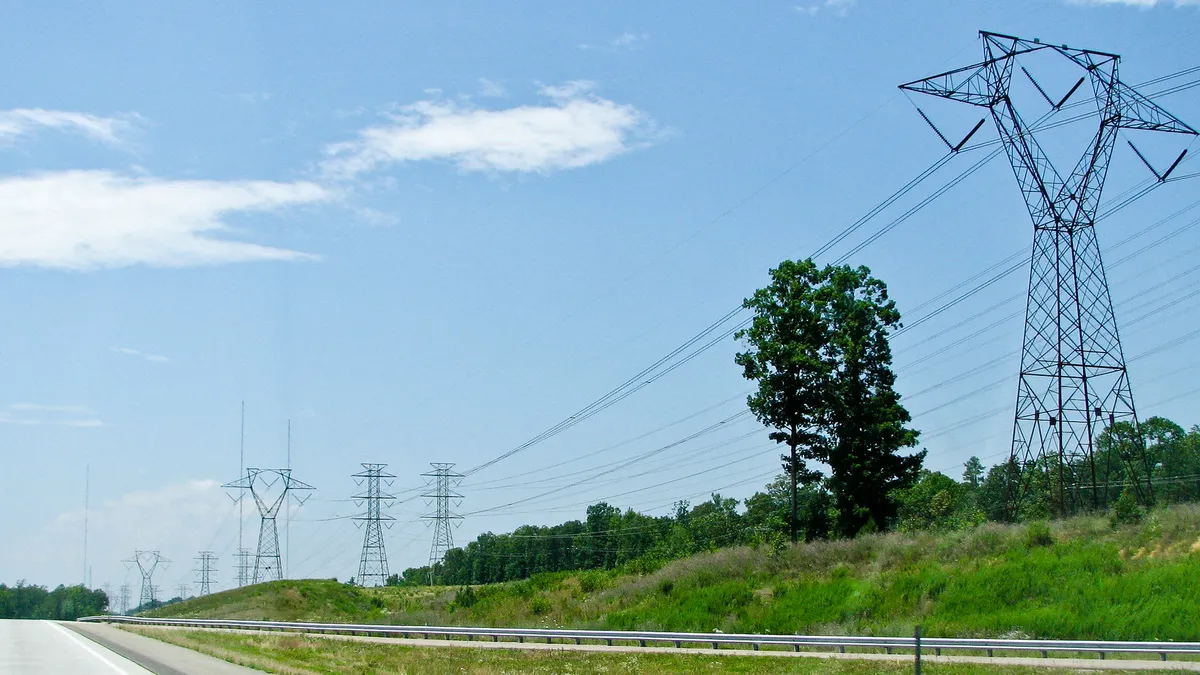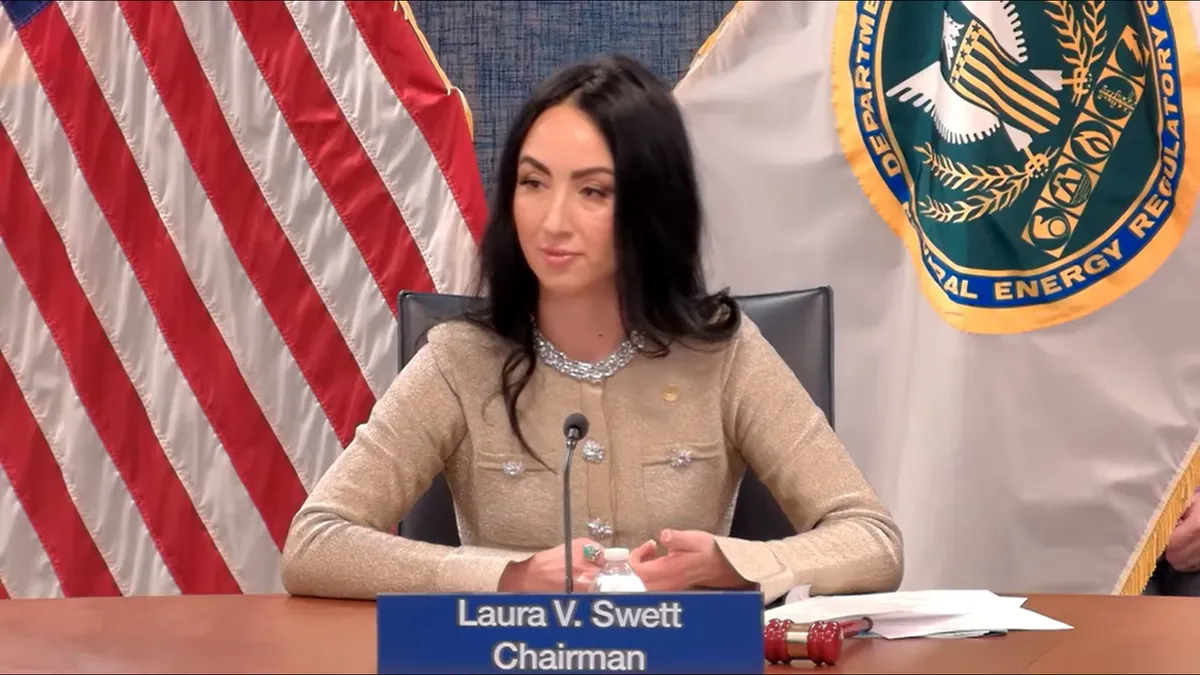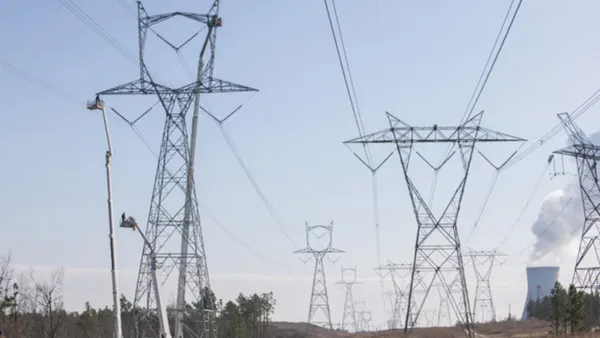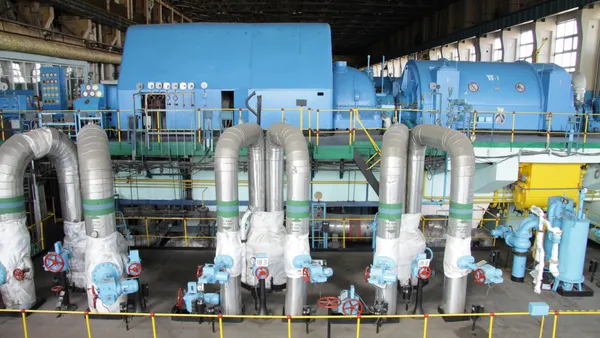Jeff Dennis is executive director of the Electricity Customers Alliance, a coalition that advocates for customer-centric solutions to grid modernization and energy affordability challenges.
A modern economy requires modern energy solutions to meet the growing energy demand created by reshored manufacturing, increased electrification of homes, businesses, and vehicles, and — of course — data centers.
Virginia and the Mid-Atlantic house the data center capital of the Western world, and the Commonwealth is positioned to lead America’s push to win the global artificial intelligence race. Data center growth can deliver many economic benefits to communities. However, this increased electricity demand requires smartly planned power infrastructure and a focus on short- and long-term solutions to address consumers’ concerns about their power bills.
Planning and building electricity infrastructure to meet rapidly growing demand while keeping electricity affordable for all consumers will take time. However, data centers and manufacturers need power now to win the AI race and capture new economic opportunities in manufacturing and the digital economy. Virginia must capitalize on short-term opportunities to expand and maximize the use of our existing grid assets to deliver more power while setting the foundation for smart, long-term buildout of our shared electricity grid.
To address this challenge, the General Assembly passed, and Gov. Glenn Youngkin signed, legislation to encourage deployment of advanced transmission technologies that maximize the amount of power that can be delivered from our existing lines. Beginning in 2026, the legislation requires the State Corporation Commission to consider the use of new power line technologies called “advanced conductors” when deciding how to bring more power supply onto the grid. Many other Mid-Atlantic states have followed Virginia’s lead in encouraging adoption of these technologies to help meet our needs today while establishing a foundation for an efficient future electricity system.
That’s great news for consumers — but it’s just the first step. Regulators at the SCC must now ensure the legislation succeeds by requiring Virginia’s utilities to pursue innovation in power line technologies, rather than simply reinvesting in the technologies of the past.
The difference between one type of power line and another might seem to be just a technical issue, but it can have real-world impacts on consumers’ power bills. Not all line technologies are truly “advanced” enough to deliver the cost savings that newer, more efficient, and lighter models known as high-performance conductors can. HPCs use carbon fiber composites in place of traditional steel for better performance. These are the same materials that have dramatically improved the performance of airplanes, cars and trucks, military technology, and myriad other products. They make HPCs lighter, stronger and — most importantly — able to carry much more electricity safely and reliably.
Using HPC technologies for power lines can double their ability to move electricity, reduce power loss due to heat by up to 30%, and improve the overall efficiency of the grid — all critical to ensuring a stable and growing power supply while our regional power regulator, the PJM Interconnection, finalizes its long-term transmission plans. That means less disruption for suburban and rural communities and shortened wait times for companies looking to connect to the grid, enabling faster economic growth for the region — and at a lower cost.
There are already hundreds of HPC lines in operation across the U.S. and thousands worldwide. America’s federal and state regulators have expressed strong support for these advanced technologies, at least partly because of their cost savings. A recent report estimated that deploying HPCs on just 25% of the aging power lines across the country would save American consumers at least $140 billion. Some of the largest new power users are directly investing in HPCs to drive these consumer savings. Google, for example, recently announced a partnership to accelerate HPC deployment to increase grid capacity.
Delivering consumer savings for everyone and expanding the Commonwealth’s AI leadership through advanced power line solutions depends on leadership. Given the acute challenges the AI revolution poses for our power system, all potential solutions need fair, transparent consideration.
HPCs offer a clear path to an affordable, reliable, and growing power supply for all electricity customers. By requiring power utilities to demonstrate that they have considered deploying HPCs in all new transmission projects, the Commonwealth’s electricity regulators can reduce pressure on the existing grid footprint, drive consumer prices down, and keep Virginia at the forefront of America’s digital economy.















